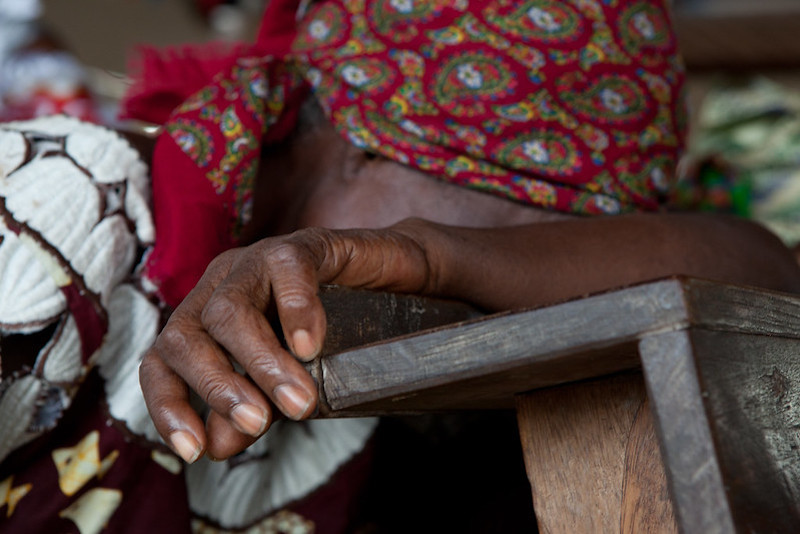by Lee Ann Pomrenke
The Liberian matriarchs of my former congregation often answered the question, “How are you?” with the same phrase. It wasn’t the typical, “I’m fine” that I expect from others. Instead, they almost always responded, “I’m trying.”
Where did that answer come from? Was it about getting work done, while being hassled to hurry it up? Liberia was colonized by freed American slaves, so perhaps it could be traced all the way back through history to slavery? Or was it an indication that they were still safe and sound, making do in the midst of their home country’s 16-year civil war, which these women lived through? Now in their older years, it became applicable to aging and adapting to life in the United States. Might it be a statement of faith, as in “I am trying to be faithful?”
Since it was not the stock phrase I was used to, “I’m trying” made me think more about how I was asking and whether I was just being polite, or really wanted to know how they were. The honesty of “trying” struck me as an acknowledgment that keeping going is not easy, so shouldn’t be dismissed without naming that reality in some way. I’m trying, despite everything.
In the bleak mid-pandemic, we are all trying. We are trying to celebrate a meaningful Advent and Christmas. Church leaders have been trying to make the technology work and cover the most important things while protecting the vulnerable. Medical professionals, public health and government leaders are trying to limit catastrophe until COVID vaccines can be widely distributed. Teachers have gone above and beyond in trying to connect with students and teach during the communal trauma of a pandemic. Many of us are trying everyday to work while parenting. We are trying to connect with loved ones, without forgetting those whose grief and loneliness is fresh, and for whom the small tasks of daily survival are such a challenge.
In Scripture Jesus asks many questions for which the answers are assumed, so much so that they seem rhetorical or even ridiculous. He asks the paralyzed man waiting at the pool of Bethsaida, “Do you want to be made well?” As a crowd presses all around him, he asks, “Who touched me?” when the answer is clearly “everybody.” The resurrected Jesus asks Peter, the rock on whom he will build the Church, repeatedly, “Do you love me?”
Instead of mirroring the “How are you?” “I’m fine” greeting, the easy-to-answer questions from Jesus provoke people to engage more deeply. I wonder how we could attempt that, in our own practice? Jesus causes all who hear him to wonder: Am I really ready to be made well, and do I know what that means? Does He notice one person reaching out, amidst the throng of needy people? Can’t He tell that I love him? What does such love look like?
“I’m fine” just isn’t going to cover it. Asking more creative questions or giving an honest response could be a kind of spiritual discipline, and a testimony to the incarnation. We are in these human bodies, trying. It is not easy, so it should not be easily dismissed. God knows all of this embodied reality. When we let those around us know we are struggling, they can both care for us and let us know their honest situation too. God knows we are all trying.
Author bio: Lee Ann M. Pomrenke is a Lutheran pastor, mother and author of the book Embodied: Clergy Women and the Solidarity of a Mothering God (Church Publishing, Inc, 2020).

